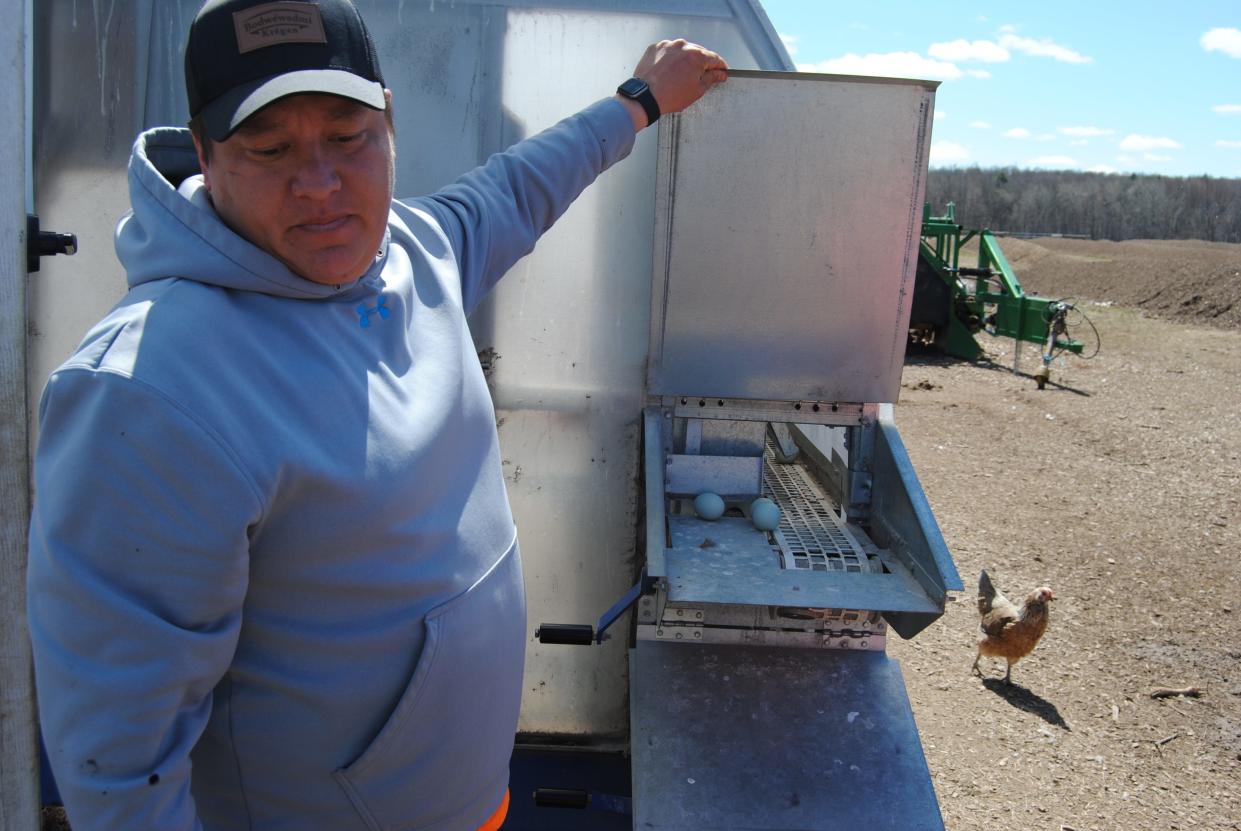Potawatomi encouraging members to eat more traditionally for better health

As Forest County Potawatomi Community health administrator, Tom Boelter sees a high rate of patients with Type 2 diabetes and diet-related health issues.
“Before integrating with the West, clearly there was no diabetes among our people,” he said. “And there weren’t as many health issues.”
Today, tribal officials are helping members incorporate traditional diets and ways of thinking of food as medicine into their lives.
Boelter said it’s a matter of thinking about what relatives ate in the past versus what people are eating today.
Heart disease, cancer and Type 2 diabetes are some of the top killers of Indigenous peoples. Medical professionals point to highly processed food products and poor diets as the main culprit.
Heart disease and cancer each caused 20% of Indigenous deaths in Wisconsin, according to the Wisconsin Department of Health Services.
Indigenous people in Wisconsin are also more than three times as likely to die from Type 2 diabetes as the white population, according to the state agency.
Food sovereignty has been a goal for many tribes since the 1800s, when the U.S. government forced Indigenous peoples onto reservations in places considered poor for farming.
Some tribes, such as the Potawatomi in Wisconsin, are using advanced farming techniques to produce crops in meaningful quantities for members even in far northern Wisconsin.
Now, tribal officials are working to steer tribal members away from their Western diets toward more traditional, Indigenous and healthy foods.
One recent free event held on Potawatomi tribal land in Forest County was led by Dr. Martin Reinhardt, an Ojibwe professor from Michigan who taught about his Decolonizing Diet Project.
He talked about making tortillas from wild rice, an important traditional staple food for Indigenous peoples in Wisconsin.
Reinhardt also served bison liver pate, which some were hesitant to try at first, but found to be quite palatable.
“They think it’s chip dip,” he said.
Reinhardt has personally tried his decolonizing diet plan in 2010, eating only traditional foods that his ancestors ate, and found he lost weight and felt very healthy.
“It's about reestablishing that relationship between humans and native foods, those beings we call food, in the Great Lakes region,” he said.
Reinhardt also took tribal members foraging in the area to teach traditional ecological knowledge about what parts of common plants can be made edible.
“The Anishinaabe (Ojibwe) had so many different teas to drink on a daily basis as food or medicine,” he said. “White pine tea has 10 times more vitamin C than orange juice. And it’s free.”
Plants thought of as weeds can treat certain ailments, such as nettles for arthritis and ragweed for skin infections.
Reinhardt is an Ojibwe citizen of the Sault Ste. Marie Tribe of Chippewa Indians from Michigan and teaches Native American Studies at Northern Michigan University. His research focuses on revitalizing relationships between humans and Indigenous plants and animals of the Great Lakes Region.
Frank Vaisvilas is a former Report for America corps member who covers Native American issues in Wisconsin based at the Milwaukee Journal Sentinel. Contact him at fvaisvilas@gannett.com or 815-260-2262. Follow him on Twitter at @vaisvilas_frank.
This article originally appeared on Milwaukee Journal Sentinel: Potawatomi Tribe working with members to eat more traditionally

